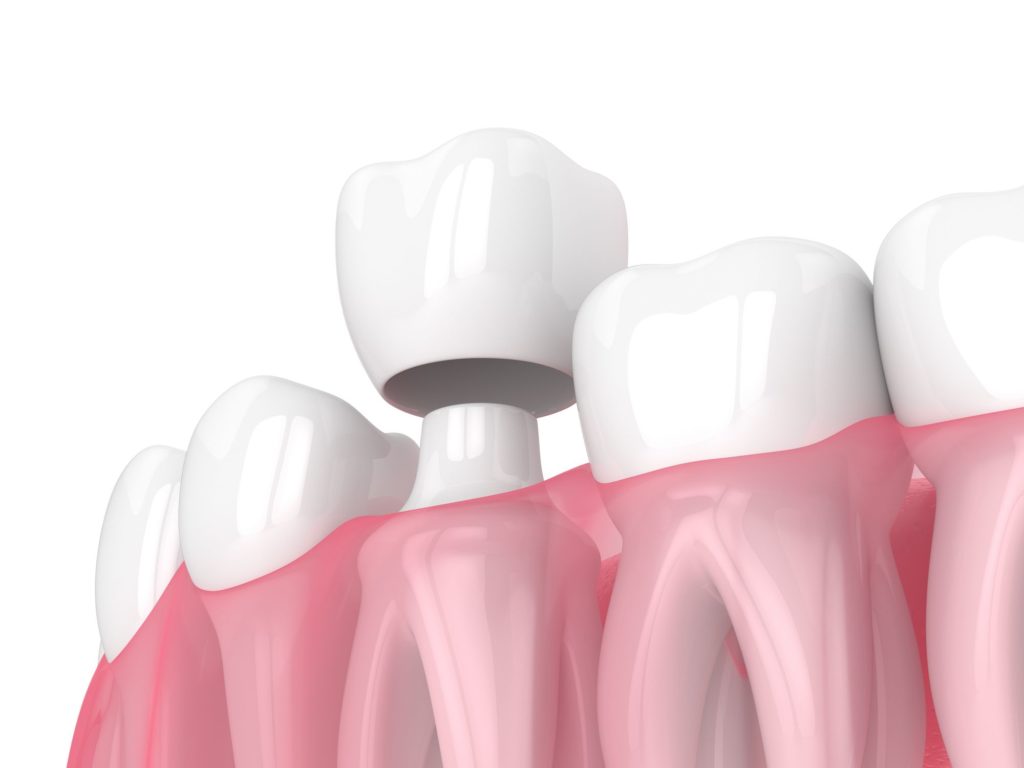Many people feel nervous when they undergo dental work. This dental fear often stems from the anticipation of pain. When you learn you must receive a dental crown, you might worry about discomfort during the treatment.
You can feel confident in the dentist’s chair when you learn that your dentist focuses on a pain-free experience when giving patients a crown. Read on to learn more about how dentists prioritize patient comfort with treatment using a dental crown.

Crowns Can Relieve Tooth Pain
If you have structural damage in a tooth, many dental patients may feel pain as a symptom. Patients with enamel loss might also experience tooth sensitivity. This can occur when a stimulus reaches the nerves in the inner layers of the tooth. The nerves send pain signals to the brain.
A dental crown will replace thinned or weakened enamel, creating a renewed shield over the tooth. This will relieve sensitivity and pain by stopping stimuli from reaching the nerves in the tooth.
Patients can look forward to pain relief with treatment from a dental crown. The crown itself will not hurt at all following the procedure.
No Pain During the Dental Crown Procedure
Patients can relax knowing that the procedure to receive a dental crown will not hurt either. The treatment begins by preparing the affected tooth which involves shaving away a minute amount of tooth enamel.
You will receive a local anesthetic to numb the area so that you will not feel any discomfort during this process. Placing the crown will be pain-free as well. The dentist seals the crown into place with dental cement for a secure fit.
Some patients may feel slight sensitivity directly after this procedure, but the symptom should fade on its own shortly. If you do feel pain or that the crown is ill-fitting, let your dentist know. This is abnormal and may need an adjustment from your dentist.
How to Prevent Damage to a Dental Crown
Dental crowns are durable fixtures, but they are not indestructible. If a crown breaks or dislodges, the underlying tooth might be at risk of dental dangers. This could result in sensitivity, pain, or other discomforts.
To avoid harming your dental crown, you should steer clear of abnormally high pressures exerted on the tooth and dental work. This means you should not bite down on hard items like ice or the end of a pen.
Similarly, if you have a habit of grinding or clenching your teeth, talk to your dentist to treat this problem. This behavior generates pressure that could also break a crown. Your dentist may give you a night guard to wear to cushion dental work against this dangerous pressure.
If you do hurt your dental crown, this will require urgent attention from a dentist to repair or replace the fixture. But you can save time and money by preventing this dental emergency with these precautions. Follow aftercare instructions from your dentist after this procedure for optimal results with your dental crown.
